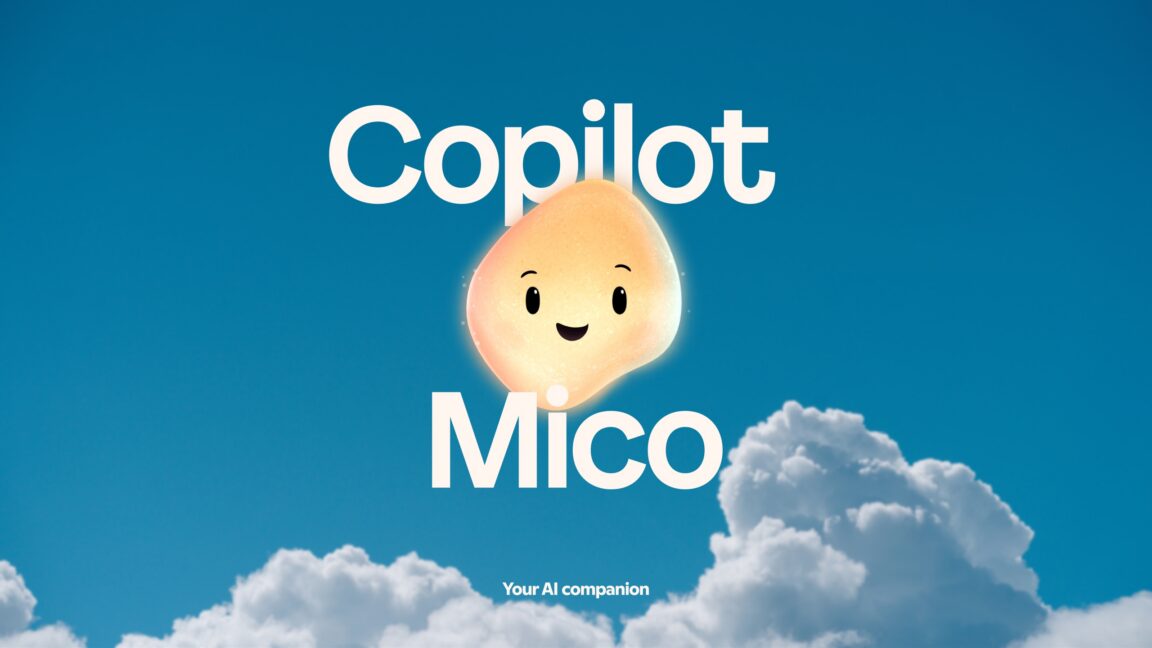
Credit: Microsoft
Microsoft said earlier this month that it wanted to add better voice controls to Copilot, Windows 11’s built-in chatbot-slash-virtual assistant. As described, this new version of Copilot sounds an awful lot like another stab at Cortana, the voice assistant that Microsoft tried (and failed) to get people to use in Windows 10 in the mid-to-late 2010s.
Turns out that the company isn’t done trying to reformulate and revive ideas it has already tried before. As part of a push toward what it calls “human-centered AI,” Microsoft is now putting a face on Copilot. Literally, a face: “Mico” is an “expressive, customizable, and warm” blob with a face that dynamically “listens, reacts, and even changes colors to reflect your interactions” as you interact with Copilot. (Another important adjective for Mico: “optional.”)
Mico (rhymes with “pico”) recalls old digital assistants like Clippy, Microsoft Bob, and Rover, ideas that Microsoft tried in the ’90s and early 2000s before mostly abandoning them.
Microsoft clearly thinks that backing these ideas with language and/or reasoning models will help Copilot succeed where both Cortana and Clippy failed. Part of the reason these assistants were viewed as annoying rather than helpful is that they could respond to a finite number of possible inputs or situations, and they didn’t even help in those situations most of the time because they could only respond to a small number of context clues. I don’t have hard evidence for this, but I’d bet that the experience of dismissing Clippy’s “It looks like you’re writing a letter!” prompts is near-universal among PC users of a certain age.
When backed by large language models, the number of situations these assistants can respond to is infinite —at least in theory —and they ought to be able to adjust what they offer based on context. Whether the output Copilot and Mico generate is helpful or even accurate is a separate question, but so far, it hasn’t been a question that has impeded Microsoft’s push to get Copilot in front of all Windows, Office, and Edge users.
Mico is just one component of the”human-centered AI” included in its Copilot Fall Release. Microsoft is also adding Copilot Groups, a chatbot that can interact with groups of up to 32 people at once; Memory & Personalization settings give users more options for letting Copilot “remember” context from previous conversations; and “Copilot for health” aims to improve answers to health care-related questions by “ground[ing] responses in credible sources like Harvard Health” and “help[ing] you find the right doctors quickly and confidently, matching based on specialty, location, language, and other preferences.”
Microsoft says that all of these updates should be live for Copilot users in the US, and will come to “the UK, Canada, and beyond in the next few weeks.”

-
 C114 Communication Network
C114 Communication Network -
 Communication Home
Communication Home


